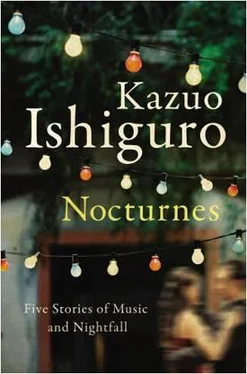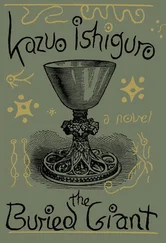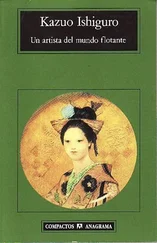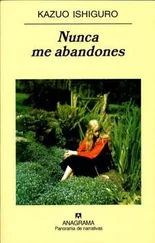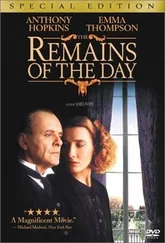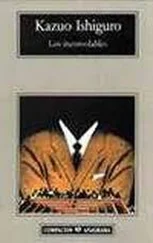I wasn’t a stranger to this area. Maggie and I had grown up only a few miles away in Pershore and our parents had often brought us for walks on the hills. But I’d never been much up for it in those days, and as soon as I was old enough, I’d refused to go with them. That summer though, I felt this was the most beautiful place in the world; that in many ways I’d come from and belonged to the hills. Maybe it was something to do with our parents having split up, the fact that for some time now, that little grey house opposite the hairdresser was no longer “our” house. Whatever it was, this time round, instead of the claustrophobia I remembered from my childhood, I felt affection, even nostalgia, about the area.
I found myself wandering in the hills practically every day, sometimes with my guitar if I was sure it wouldn’t rain. I liked in particular Table Hill and End Hill, at the north end of the range, which tend to get neglected by day-trippers. There I’d sometimes be lost in my thoughts for hours at a time without seeing a soul. It was like I was discovering the hills for the first time, and I could almost taste the ideas for new songs welling up in my mind.
Working at the cafe, though, was another matter. I’d catch a voice, or see a face coming up to the counter while I was preparing a salad, that would jerk me back to an earlier part of my life. Old friends of my parents would come up and grill me about what I was up to, and I’d have to bluff until they decided to leave me in peace. Usually they’d sign off with something like: “Well at least you’re keeping busy,” nodding towards the sliced bread and tomatoes, before waddling back to their table with their cup and saucer. Or someone I’d known at school would come in and start talking to me in their new “university” voice, maybe dissecting the latest Batman film in clever-clever language, or else starting on about the real causes of world poverty.
I didn’t really mind any of this. In fact, some of these people I was genuinely quite glad to see. But there was one person who came into the cafe that summer, the instant I saw her, I felt myself freezing up, and by the time it occurred to me to escape into the kitchen, she’d already seen me.
This was Mrs. Fraser-or Hag Fraser, as we used to call her. I recognised her as soon as she came in with a muddy little bulldog. I felt like telling her she couldn’t bring the dog inside, though people always did that when they came to get things. Hag Fraser had been one of my teachers at school in Pershore. Thankfully she retired before I went into the sixth form, but in my memory her shadow falls over my entire school career. Her aside, school hadn’t been that bad, but she’d had it in for me from the start, and when you’re just eleven years old, there’s nothing you can do to defend yourself from someone like her. Her tricks were the usual ones twisted teachers have, like asking me in lessons exactly the questions she sensed I wouldn’t be able to answer, then making me stand up and getting the class to laugh at me. Later, it got more subtle. I remember once, when I was fourteen, a new teacher, a Mr. Travis, had exchanged jokes with me in class. Not jokes against me, but like we were equals, and the class had laughed, and I’d felt good about it. But a couple of days later, I was going down the corridor and Mr. Travis was coming the other way, talking with her , and as I came by she stopped me and gave me a complete bollocking about late homework or something. The point is she’d done this just to let Mr. Travis know I was a “troublemaker;” that if he’d thought for one moment I was one of the boys worthy of his respect, he was making a big mistake. Maybe it was because she was old, I don’t know, but the other teachers never seemed to see through her. They all took whatever she said as gospel.
When Hag Fraser came in that day, it was obvious she remembered me, but she didn’t smile or call me by name. She bought a cup of tea and a packet of Custard Creams, then took them outside to the terrace. I thought that was that. But then a while later, she came in again, put her empty cup and saucer down on the counter and said: “Since you won’t clear the table, I’ve brought these in myself.” She gave me a look that went on a second or two longer than was normal-her old if-only-I-could-swat-you look-then left.
All my hatred for the old dragon came back, and by the time Maggie came down a few minutes later, I was completely fuming. She saw it straight away and asked what was wrong. There were a few customers out on the terrace, but no one inside, so I started shouting, calling Hag Fraser every filthy name she deserved. Maggie got me to calm down, then said:
“Well, she’s not anybody’s teacher any more. She’s just a sad old lady whose husband’s gone and left her.”
“Not surprised.”
“But you have to feel a bit sorry for her. Just when she thought she could enjoy her retirement, she’s left for a younger woman. And now she has to run that bed-and-breakfast by herself and people say the place is falling apart.”
This all cheered me up no end. I forgot about Hag Fraser soon after that, because a group came in and I had to make a lot of tuna salads. But a few days later when I was chatting to Geoff in the kitchen, I got a few more details from him; like how her husband of forty-odd years had gone off with his secretary; and how their hotel had got off to a reasonable start, but now all the gossip was of guests demanding their money back, or checking out within hours of arrival. I saw the place myself once when I was helping Maggie with the cash-and-carry and we drove past. Hag Fraser’s hotel was right there on the Elgar Route, a fairly substantial granite house with an outsize sign saying “Malvern Lodge.”
But I don’t want to go on about Hag Fraser too much. I’m not obsessed with her or with her hotel. I’m only putting this all here now because of what happened later, once Tilo and Sonja came in.
Geoff had gone into Great Malvern that day, so it was just me and Maggie holding the fort. The main lunch rush was over, but at the point when the Krauts came in, we still had plenty going on. I’d clocked them in my mind as “the Krauts” the moment I heard their accents. I wasn’t being racist. If you have to stand behind a counter and remember who didn’t want beetroot, who wanted extra bread, who gets what put on which bill, you’ve no choice but to turn all the customers into characters, give them names, pick out physical peculiarities. Donkey Face had a ploughman’s and two coffees. Tuna mayo baguettes for Winston Churchill and his wife. That’s how I was doing it. So Tilo and Sonja were “the Krauts.”
It was very hot that afternoon, but most of the customers-being English-still wanted to sit outside on the terrace, some of them even avoiding the parasols so they could go bright red in the sun. But the Krauts decided to sit indoors in the shade. They had on loose, camel-coloured trousers, trainers and T-shirts, but somehow looked smart, the way people from the continent often do. I supposed they were in their forties, maybe early fifties-I didn’t pay too much attention at that stage. They ate their lunch talking quietly to each other, and they seemed like any pleasant, middle-aged couple from Europe. Then after a while, the guy got up and started wandering about the room, pausing to study an old faded photo Maggie has on the wall, of the house as it was in 1915. Then he stretched out his arms and said:
“Your countryside here is so wonderful! We have many fine mountains in Switzerland. But what you have here is different. They are hills. You call them hills. They have a charm all their own because they are gentle and friendly.”
“Oh, you’re from Switzerland,” Maggie said in her polite voice. “I’ve always wanted to go there. It sounds so fantastic, the Alps, the cable-cars.”
Читать дальше
